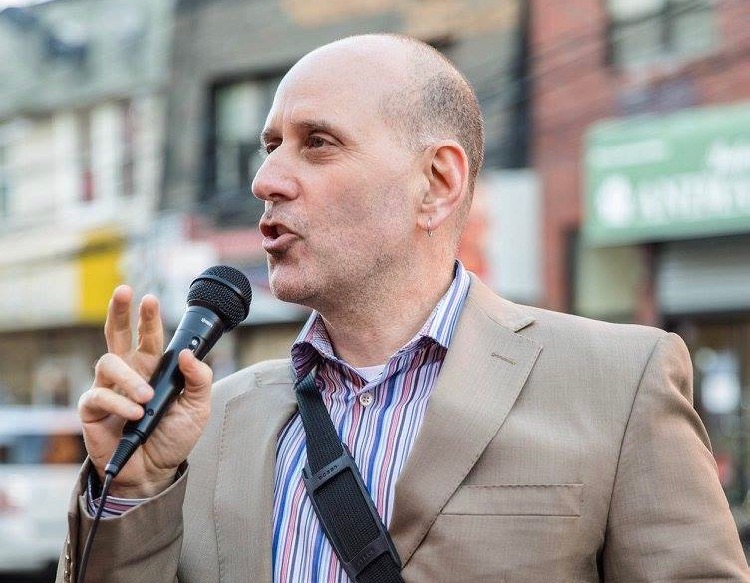New York City, Oct. 26 – Responding today to a questionnaire by the disability advocacy group RespectAbility, Harvey Epstein, who recently won the election for New York State Assembly District 74, outlined his views on education, employment and stigma for the 948,000 people with disabilities living in New York City. That includes people who are blind or deaf or have other visible conditions such as spinal cord injuries, as well as people with invisible disabilities including learning disabilities, mental health or Autism.
According to a recent survey, 74 percent of likely voters have a disability themselves or have a family member or a close friend with disabilities. The upcoming elections and their results will have an impact on people with disabilities, so it is important to become familiar with the candidates’ thoughts on certain issues.
“Candidates for office ignore the disability community at their peril,” said former U.S. Representative and Dallas Mayor Steve Bartlett. Bartlett, who was a primary author of the Americans With Disabilities Act of 1990, is the chairman of RespectAbility.
A special election for the position of New York State Assembly District 74, which Epstein won, was held on April 24, 2018.
RespectAbility is nonpartisan and does not endorse candidates. The questionnaire is purely for educational purposes.
The full text of RespectAbility’s questions and Epstein’s replies follows:
QUESTION 1: EDUCATION AND SKILLS: There are more than 12,938 students with disabilities enrolled in New York City’s public schools. Of that number, 9,189 are Latinx students with disabilities who face additional barriers such as language differences, inadequate resources, economic disparities and racial discrimination. What will you do to ensure that more and more students with disabilities of all backgrounds receive the skills, resources and opportunities they need to succeed?
ANSWER: As a member of the New York Assembly Task Force for People with Disabilities, I believe it is my job to advocate on behalf of students with disabilities. That includes increasing funds dedicated to providing services to CUNY and SUNY students with disabilities and ensuring schools and public transportation are more accessible for people with disabilities. New York falls short and we must do better.
QUESTION 2: JOBS AND INDEPENDENCE: There are 455,186 working-age people with disabilities in New York City and only 150,074 have jobs. What is your plan to support more job opportunities for people with disabilities across the NYC metropolitan area?
ANSWER: We must encourage employers to hire people with disabilities. I include myself in this expectation, and I have hired a person with a disability on my staff. All of us must be part of the solution. In addition, we must increase tax incentives for employers to hire people with disabilities given the disgracefully low employment rates of people with disabilities.
QUESTION 3: DISABILITY AND GENDER: Poverty, especially in major metropolises like New York, disproportionately impact women and girls, especially those of color. In total, there are 251,089 working-age women with disabilities living in New York City. Out of that number, 111,236 New York women living with disabilities have an income below the poverty level in one of the most expensive cities in the world. Likewise, in the City, only 29 percent of working-age African American women with disabilities and 24 percent of working-age Latina women with disabilities have jobs. What can you do as an elected official to raise their voice, provide them opportunities and empower them with a better future?
ANSWER: Women with disabilities, especially women of color with disabilities, fall deeper into poverty since they face challenges of race, class, and gender on top of their disability. However, educational advancement is a key component to having people access more opportunities. As I stated above, the focus on improving services at CUNY and SUNY is an important step. It is important that I use my privilege and my position as an elected official to advocate for people with disabilities. After being elected in April, I held my first press conference focusing on subway access and pushing to have the L train have accessible stations, which is critical in order for people with disabilities to be able to utilize public transportation. It is important to create employment opportunities and tax incentives to hire people with disabilities, but we also have to be sure people with disabilities have better access to transportation to get to work.
QUESTION 4: FIGHTING PREJUDICE: Media representation of minority communities is crucial to reducing discrimination, bias and stigma in our broad culture. What will you do to leverage the power of media/entertainment to fight stigmas and empower New Yorkers with disabilities to work in entertainment, just like anyone else?
ANSWER: I will continue to stand with the the disability community and will continue to work to ensure they have a leadership position on the critical issues that impact them and use my office to play a supportive role. This includes: encouraging lobby days, highlighting the work of leaders in the community, and continuing to collaborate with them, like I have with the 504 Democratic Club, who have endorsed me in this election.
QUESTION 5: CIVIC ENGAGEMENT & EQUITY: People most directly affected by issues such as education, jobs, prejudice, homelessness, criminal justice, poverty and other issues deserves to have their voice, insights and experiences respected and utilized in finding and implementing solutions. People with disabilities are disproportionally impacted by these issues. As a public official, what will you do to ensure that New Yorkers with disabilities have “a seat at the table” for all major issues and can be part of solutions so that they and all others can have a better future?
ANSWER: Part of the solution is to start working with the disability community to start building political leaders. As an Assembly Member, I am committed to I will continue to work with the disability community to work on issues that impact them and collaboratively find solutions that we can advance in Albany together.

[…] Harvey Epstein, Assembly District 74 […]